Pastoralists
Thomas Elder, a wealthy pastoralist, commissioned surveys of the area hoping to find suitable grazing country. He bought up many pastoral runs in the north and in the early 1860s acquired the Beltana Run lease no. 370 in 1862 with his business partner, Robert Barr Smith. The station ran livestock and a camel breeding program for work on the overland telegraph line, exploration and its own use.
The partners had the financial resources to withstand the pressures of drought and depression during the late 19th century and many fine stone buildings still in use today were built. The employment generated by the station was enormous and until the early 20th Century there were as many as 60 people living on the station. Jobs such as fencer, boundary rider, well sinker, builder, dam cleaner, saddler, blacksmith, cook, teamster, dogger or shearer were all in constant demand. Just as it was a major asset to the town of Beltana to have a business the size of Elders on its doorstep, so too the mechanization of the pastoral industry signalled the beginning of the change of the town.
Thomas Elder
The greatest Elder of them all, who realised the potential of the outback


